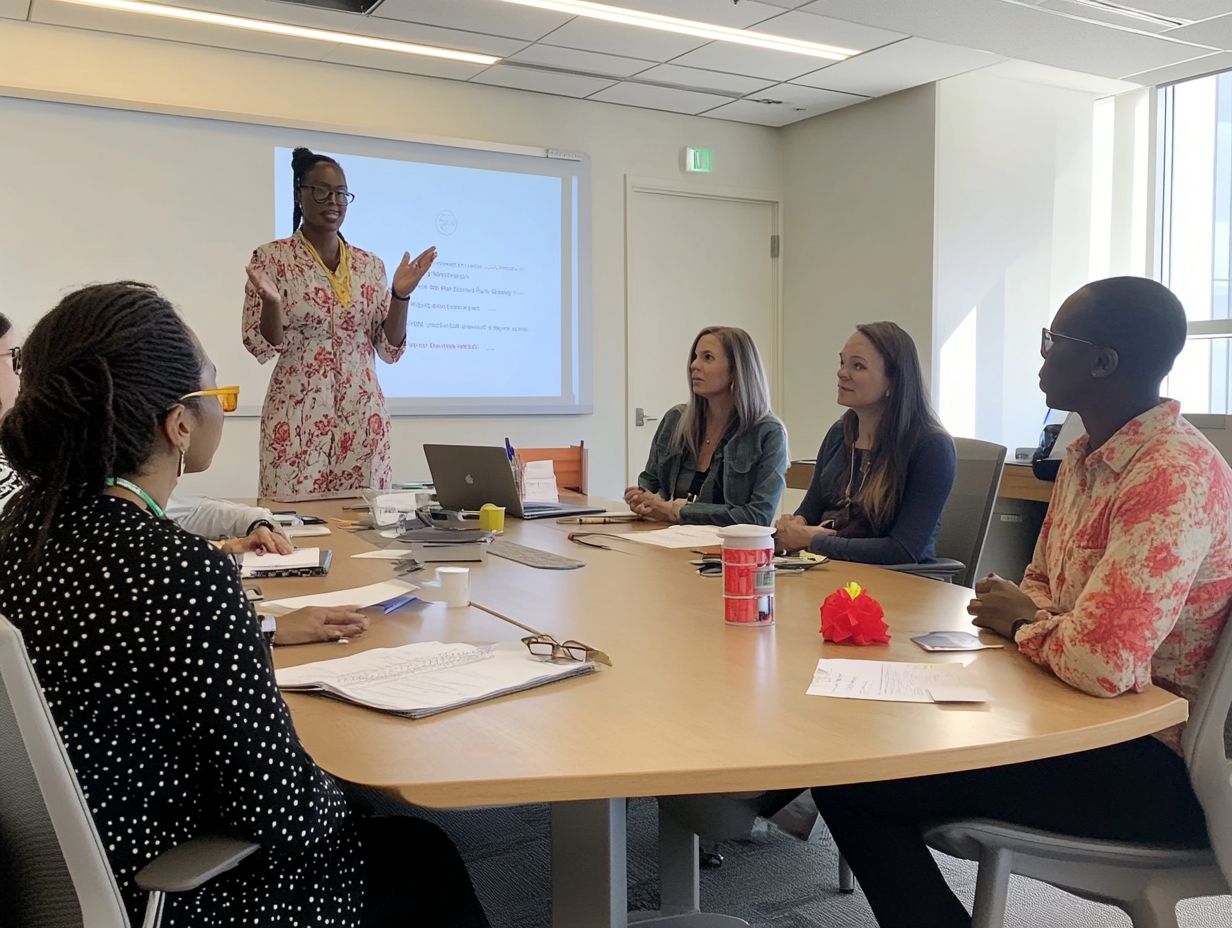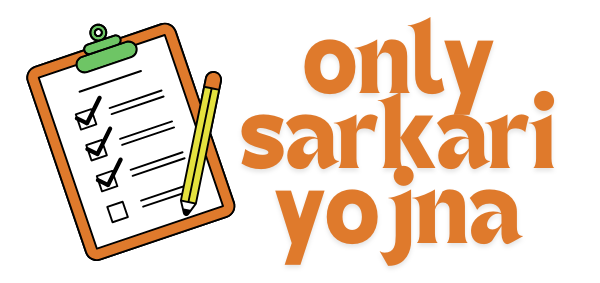In today’s competitive job market, technical expertise alone is insufficient to ensure long-term success. Employers are increasingly prioritizing soft skills—those interpersonal attributes that enhance communication and interaction with others.
This article examines the definition and significance of soft skills, emphasizes essential traits such as communication, leadership, adaptability, time management, and teamwork, and provides practical recommendations for developing these skills. Additionally, it addresses the crucial balance between hard and soft skills in advancing one’s career.
Understanding Soft Skills

Understanding soft skills is essential in today’s professional landscape, as they encompass a range of non-technical abilities that are crucial for effective interpersonal interactions and workplace dynamics.
These skills include communication, teamwork, adaptability, problem-solving, and emotional intelligence, all of which play a significant role in both personal and professional success.
Mastering these skills not only enhances collaboration and productivity but also promotes resilience and adaptability in a rapidly changing work environment.
Definition and Importance
Soft skills, commonly referred to as interpersonal skills, encompass a range of attributes such as communication, emotional intelligence, teamwork, and adaptability. These skills are essential for achieving success in the workplace and facilitating career advancement.
These attributes serve as the foundation for effective communication, enabling individuals to articulate their ideas clearly while also comprehending the perspectives of others. Strong interpersonal skills significantly enhance relationship-building, which is vital for creating a collaborative environment.
In team settings, individuals with well-developed soft skills contribute not only to a positive workplace culture but also exhibit the ability to navigate conflicts effectively, demonstrating advanced conflict resolution capabilities.
As professionals cultivate these competencies, they often observe a direct correlation with opportunities for career advancement, particularly in leadership positions where the ability to inspire and connect with others is of utmost importance.
The Top Soft Skills for Success
In the pursuit of career success, specific soft skills emerge as essential components that can substantially enhance an individual’s effectiveness and adaptability within the workplace.
Skills such as communication, teamwork, leadership, adaptability, and time management are highly regarded by employers, as they enable professionals to excel in dynamic environments and effectively address challenges.
Communication
Effective communication serves as a fundamental pillar of professional success, encompassing not only verbal and written exchanges but also active listening and feedback mechanisms that enhance interpersonal relationships.
Mastering the various facets of communication is essential for any professional seeking to excel in a competitive environment.
Verbal communication is crucial for establishing clarity in discussions, while nonverbal cues, such as body language, can effectively convey confidence and engagement.
The capacity to listen actively ensures a comprehensive understanding of others’ perspectives, thereby fostering a more collaborative workplace. Constructive feedback, whether provided or received, plays a significant role in both personal and professional development.
Furthermore, developing negotiation skills and refining presentation abilities can substantially enhance one’s capacity to influence and motivate others, making these competencies vital for individuals striving for long-term success.
Leadership
Leadership encompasses the capacity to influence individuals towards the attainment of shared objectives and encompasses various leadership styles that can be tailored to meet the specific needs of both the team and the organization.
Each style, whether it adopts an authoritarian approach emphasizing control or a more democratic method that encourages team participation, plays a significant role in shaping team dynamics and overall effectiveness. The implications of these diverse leadership styles are substantial; they determine communication patterns, decision-making processes, and the general morale of the group.
Emotional intelligence is increasingly acknowledged as a critical element of effective leadership, enabling leaders to navigate interpersonal relationships with empathy and improve relationship management. Mentoring can act as a catalyst for the development of leadership qualities, providing guidance and coaching that enable individuals to excel in their roles and cultivate a culture of growth within the team.
Adaptability

Adaptability is the ability to adjust to new conditions, rendering it an essential soft skill for effectively navigating the complexities of the modern workplace and fostering resilience in the face of change.
In today’s rapidly evolving environment, professionals frequently encounter unexpected challenges and shifting demands that necessitate a flexible mindset. Embracing adaptability not only promotes personal development but also enhances team dynamics, as individuals who can adjust effectively tend to inspire confidence among their colleagues.
For example, cultivating stress management techniques, such as mindfulness practices and effective prioritization methods, can significantly enhance an individual’s capacity to cope during challenging periods. Additionally, employing problem-solving strategies like brainstorming sessions or decision matrices enables individuals to navigate uncertainties, ensuring that they maintain a proactive approach rather than a reactive one when faced with new obstacles.
Time Management
Effective time management is the practice of systematically organizing tasks to enhance productivity while ensuring that deadlines are met and priorities are properly addressed.
This process involves not only the appropriate allocation of hours within a day but also the strategic application of various techniques and tools that professionals can utilize to streamline their workflows. Understanding how to prioritize tasks is fundamental to this approach, enabling individuals to concentrate on what is genuinely important and urgent.
Incorporating efficient task management methodologies, such as the Pomodoro Technique or the Eisenhower Matrix, can lead to significant improvements in performance. Additionally, recognizing the importance of delegation allows professionals to offload certain responsibilities, thereby creating space for high-priority projects that align with their long-term objectives.
Teamwork
Teamwork encompasses collaborative efforts among individuals aimed at achieving a common goal. It is underpinned by strong relationship skills, effective communication, and a commitment to diversity and inclusion within teams.
This multifaceted approach relies not only on individual competencies but also on the strategic utilization of collaboration tools that facilitate seamless interactions and efficient information sharing. By prioritizing transparency and accessibility in communication, teams can significantly enhance their overall productivity and foster innovation.
Creating a positive group dynamic is essential, as it promotes open exchange of ideas, mutual support, and resilience in the face of challenges. Additionally, effective conflict management is vital in this process, enabling team members to navigate disagreements constructively.
Furthermore, strategic networking serves to expand connections and resources, thereby enriching the capabilities of the team.
Developing Soft Skills
The development of soft skills is a continuous endeavor that necessitates deliberate practice and self-awareness.
This ongoing process enables individuals to consistently improve their interpersonal effectiveness and adaptability across diverse environments.
Ways to Improve and Practice
To effectively enhance and practice soft skills, individuals may engage in a variety of activities, including seeking feedback, participating in mentorship programs, and fostering self-motivation.
Expanding upon these strategies, it is crucial for individuals to develop a mindset of accountability, where they actively pursue constructive criticism from peers and mentors.
Participating in role-playing scenarios can significantly enhance emotional maturity, enabling individuals to navigate diverse social situations with empathy and understanding.
Joining group activities or workshops focused on soft skill development not only provides practical experience but also facilitates networking, creating connections that may lead to valuable mentorship opportunities.
Additionally, encouraging regular self-reflection allows individuals to identify areas for growth while reinforcing their commitment to personal development.
The Role of Soft Skills in Career Success

The importance of soft skills in achieving career success cannot be underestimated, as they play a crucial role in professional development, networking opportunities, and overall workplace effectiveness.
How Soft Skills Can Impact Your Career
Soft skills are essential in influencing career advancement and enhancing employability, as they significantly improve an individual’s capacity for effective communication, team leadership, and the ability to navigate workplace challenges.
For example, professionals who possess strong emotional intelligence are generally more adept at managing conflicts and understanding the perspectives of their colleagues, thereby fostering a collaborative work environment. Likewise, individuals who demonstrate leadership effectiveness, even in informal capacities, are capable of inspiring their teammates, influencing decision-making processes, and successfully driving projects to completion.
Employers place a high value on these traits, as they not only reflect a candidate’s ability to perform specific job functions but also indicate potential for future leadership roles. A candidate with a robust foundation in soft skills typically stands out during the hiring process, as they are perceived as adaptable, resilient, and capable of thriving in dynamic work environments.
The Importance of Balancing Hard and Soft Skills
Balancing hard and soft skills is crucial in the contemporary workplace, as both skill sets contribute significantly to overall professionalism and employability, thereby enhancing an individual’s effectiveness across various roles.
In today’s competitive environment, a successful professional must not only possess technical knowledge but also demonstrate effective communication and collaboration skills.
Hard skills, such as data analysis and programming, provide individuals with the essential tools to execute specific tasks, while soft skills, including problem analysis and critical thinking, enable them to navigate complex challenges and foster productive relationships.
Together, these competencies cultivate a well-rounded employee capable of adapting to diverse environments, addressing obstacles with creativity and resilience, and ultimately driving success for their organizations.
Frequently Asked Questions
What are essential soft skills for success?
Essential soft skills for success are a set of personal qualities, habits, and attitudes that allow individuals to work well with others, adapt to new situations, and achieve their goals.
Why are essential soft skills important for success?

Essential soft skills are important for success because they help individuals communicate effectively, build strong relationships, and handle challenges and changes in the workplace.
What are some examples of essential soft skills for success?
Examples of essential soft skills for success include communication, teamwork, adaptability, problem-solving, time management, and leadership.
Can essential soft skills be learned and developed?
Yes, essential soft skills can be learned and developed through practice, feedback, and self-reflection. They are not innate abilities and can be improved over time.
How can I improve my essential soft skills for success?
To improve your essential soft skills for success, you can take courses or workshops, seek feedback from colleagues or mentors, and actively practice and apply them in your daily tasks.
What role do essential soft skills play in career advancement?
Essential soft skills are crucial for career advancement as they help individuals stand out as strong communicators, team players, and problem solvers, which are highly valued by employers and can lead to promotions and opportunities for growth.




